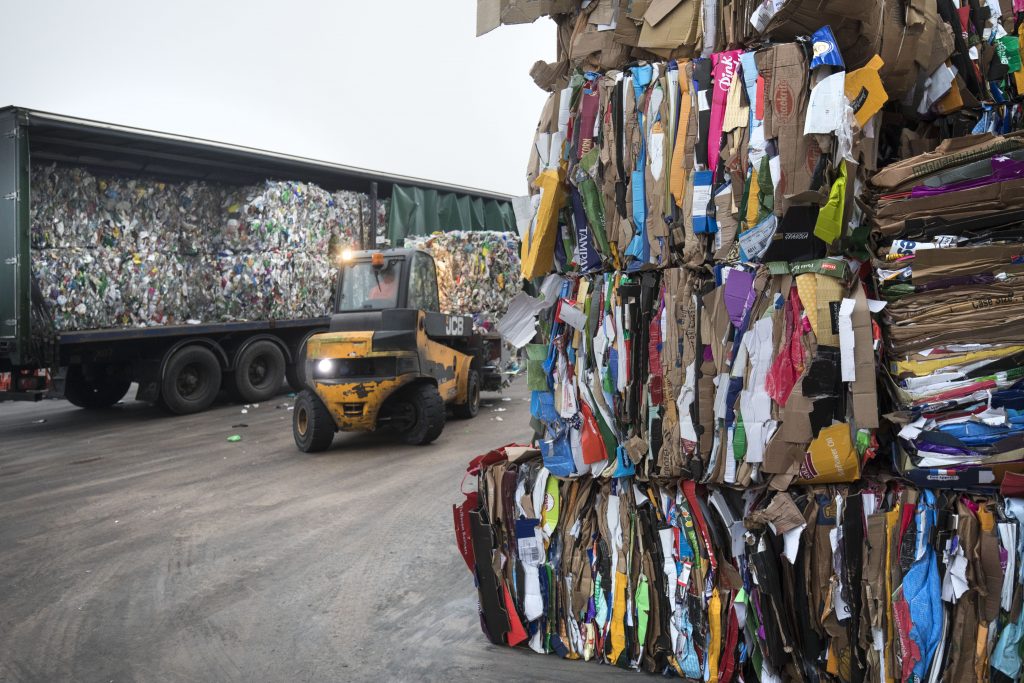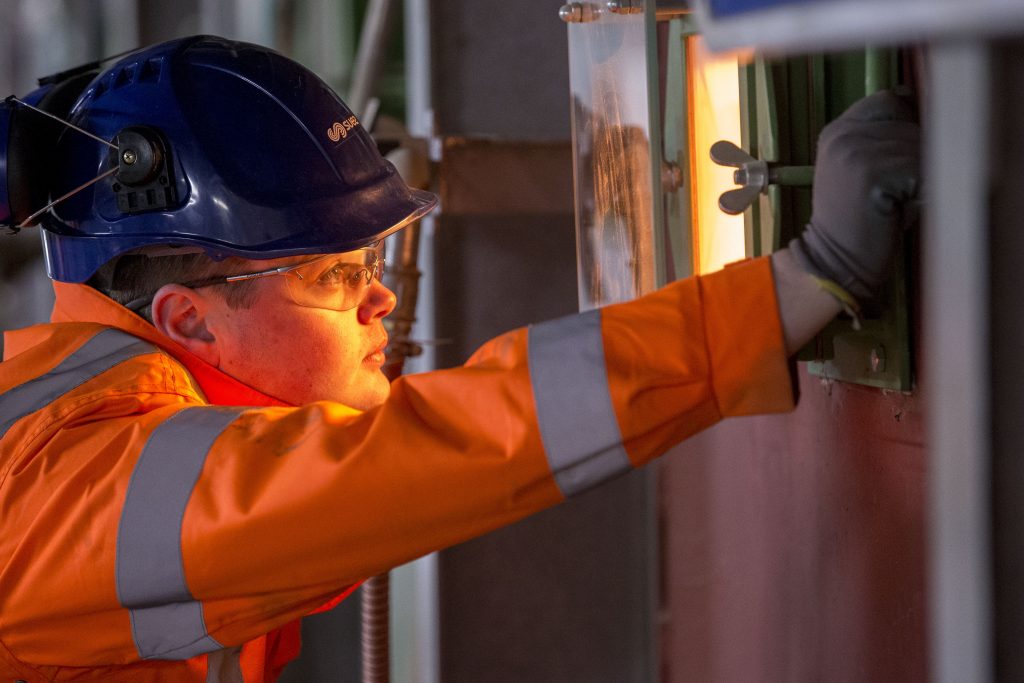Is energy recovery a critical transition step towards a more circular economy in the UK?
9th March 2018
Posted by Dr Adam Read.
This month, I reflect on two days of heated debate at the 2018 Energy from Waste Conference hosted at etc.venues County Hall, London.
Storm in a tea cup?
Last week was an interesting one for many reasons, the most notable of which was the weather and its impact on us all. The ‘Beast from the East’ and Storm Emma really did bring much of the UK to a standstill over the last seven days or so, with people being snowed in, stuck on trains or in cars for lengthy periods with home deliveries and many shops running very restricted services.
So I was surprised at just how many delegates braved the conditions to make it to County Hall, London for the annual two-day Energy from Waste Conference, which this year had kicked off with a well-attended study tour of the Cory energy-from-waste (EfW) plant at Belvedere.
 It was the biggest event in the series, a reflection in my opinion of the excellent two-day programme and speaker line-up and the change in venue to the more accessible and most welcoming County Hall, the former home of the Greater London Authority.
It was the biggest event in the series, a reflection in my opinion of the excellent two-day programme and speaker line-up and the change in venue to the more accessible and most welcoming County Hall, the former home of the Greater London Authority.
The facilities were excellent, the food exceptional, and the general networking ambiance perfect for a sector, where there are plenty of deals to be done and opportunities to be explored.
Perhaps more surprising, was the many delegates who attended on one or both days (which given the concerns about the worsening weather on the Wednesday afternoon was a real triumph for the organisers), showcasing to me that the obvious role that energy recovery has to play in the UK today.
The general expectation from both UK and international experts (the international delegates, exhibitors and panellists were a significant group, with over 50% of attendees coming from farther afield than the UK) was that the market has room to grow and expand further over the next 5-10 years as materials are increasingly diverted away from landfill, as we push to meet the Circular Economy Package recycling targets, and whilst concerns still surround overseas recyclate markets.
So I was more than pleased to have been invited to chair one of the sessions on day two and participate in the event in its entirety, having identified the sector as a growth opportunity and very much ‘here to stay’ in my forward to Recycling & Waste World’s EfW supplement in December 2017.
The key message? EfW is part of a circular economy
Day one focused on the bigger issues of financing, business models and economics, while Day two was more ‘nuts and bolts’ as we considered operational aspects of successful project delivery.
The keynote address was from Paul de Bruckyer, President of Indaver (and CEWEP President) who presented a fascinating view on how energy from waste can and should play a more central role in circular economies and societies.
This was the ideal opening address, both positive in terms of EfW growth opportunities, and provocative in terms of linking circular economy thinking, sustainability and the need for societies and cities to utilise their energy sources better, namely residual wastes, but also the additional resources that can be recovered from EfW, namely IBA, fly ash and some additional valuable metals.
And if Europe was to hit the 70% recycling target from the Circular Economy Package and moves to a no landfill disposal scenario, then the EU will need 140 metric tonnes per annum (mtpa) of energy recovery capacity – that’s an extra 50Mtpa on today’s capacity – so the future certainly looks bright for EfW projects across Europe in the next decade. As one delegate said ‘waste is the world’s fastest growing resource’ and as such should be mined and utilised for best effect.
Other important headlines
Much of the debate in the breakout sessions and during coffee and lunch breaks considered the scale of the residual waste capacity gap in Europe and more specifically the UK (general consensus is we need another six mtpa of recovery to offset declining landfill even with enhanced recycling rates).
And there was a real buzz at the drinks reception about the role that EfW could play in the UK over the next 25 years, as it transitions away from landfill and towards more circular business models and higher recycling etc.
 Other hot topics addressed over the two days included a fascinating debate on the need to move away from weight based targets to carbon (or other) metrics and the impact this might have on EfW in the UK. The expected reduction in solid recovered fuel (SRF) and refuse derived fuel (RDF) exports as we exit the EU due to proposed handling charges, the exchange rate conundrum and possible tariffs and taxes. This could make an additional three mtpa of fuel available for UK processing, on top of the six mtpa already being projected.
Other hot topics addressed over the two days included a fascinating debate on the need to move away from weight based targets to carbon (or other) metrics and the impact this might have on EfW in the UK. The expected reduction in solid recovered fuel (SRF) and refuse derived fuel (RDF) exports as we exit the EU due to proposed handling charges, the exchange rate conundrum and possible tariffs and taxes. This could make an additional three mtpa of fuel available for UK processing, on top of the six mtpa already being projected.
Although this was providing delegates from all aspects of the EfW supply chain with comfort and opportunity, it also highlighted the one downside of the UK EfW market right now, a lack of clear government vision or commitment to the role that energy recovery, and other forms of advanced conversion technology producing fuels and chemicals for the UK economy, will play in our Resources & Waste Strategy.
So, it was good to see representation from a number of UK Government Departments who were listening to the debates and taking notes to help them work through a number of possible policy scenarios and impact assessment associated with deferent levers, programmes and activities in the run up to the strategy’s launch at the back end of 2018.
I was captivated on day two by the breadth and depth of discussion concerning data and its role in modern energy-from-waste plants. So many modern EfW plants are now being adapted and retrofitted to maximise their performance with automated systems, real-time monitoring and optimisation software, enabling plants to prevent problems before they happen, thus avoiding expensive maintenance, replacement equipment and downtime.
The other theme that rumbled across both days was the need to improve the thermal efficiency of modern EfW and the desire to see UK Government help facilitate combined heat and power (CHP) networks. Heat offtake is considered by many the holy grail of EfW, enabling a much more positive message to be shared with stakeholders, and making EfW plants a far more positive neighbour.
Birmingham City and the West Midlands Regional Mayor are already developing energy innovation zones, facilitating new technology, new investment and better synergies between consumers, industry and offtakers.
This is definitely a case study that will generate a lot of interest in the coming year, and could provide the platform for many other urban energy projects that have waste and resource management at their heart. They could easily become the policy focus that promotes the retrofitting and upgrading of existing infrastructure in a number of cities across the UK, helping to keep project costs down and minimise negative stakeholder feedback given the sites in question are already approved and accepted.
Good news
So, even with the weather conspiring against us, and a few speakers and delegates being unable to join us, the two-day event was a real success. The content, the quality of the speakers, the debates and breakout sessions all helped to inform the delegates, inspiring some to think differently and enabling all parts of the project supply chain to meet and discuss existing project and future opportunities.
The UK market looks buoyant and will grow over the next decade as we transition to a new resource efficiency society, with fuels, energy, heat and power offtake all become critical for our modern infrastructure portfolio.
If you couldn’t make the conference can I suggest you do two things in the near future:
- Speak to the conference organisers about accessing the slide deck to get more of the detail and examples that I have presented here.
- Make sure you put EfW 2019 in the diary (expected to be late February 2019) and book a delegate place early for next year’s event.
I am never disappointed with this event, and this year was a real highlight in terms of sector events and conferences I attend (of which there are many I can assure you), while the delegate numbers and informal feedback received to date suggest that the overall delegate experience was positive on many levels. Well done to the conference team, and well done to everyone who braved the conditions.
This was originally written by Dr Adam Read for Recycling and Waste World.
Tweet- circular economy
- Circular Economy package
- Energy from Waste Conference 2018
- energy-from-waste
- recycling
- recycling targets

Sir,
Is it possible to get access to the presentations made during the conference?
Hi there, thank you for your comment. We would suggest contacting the organisers to gain access to any collateral from the event. Their contact details can be found here: http://www.efwconference.com/contact/ Kind regards, SUEZ marketing team.